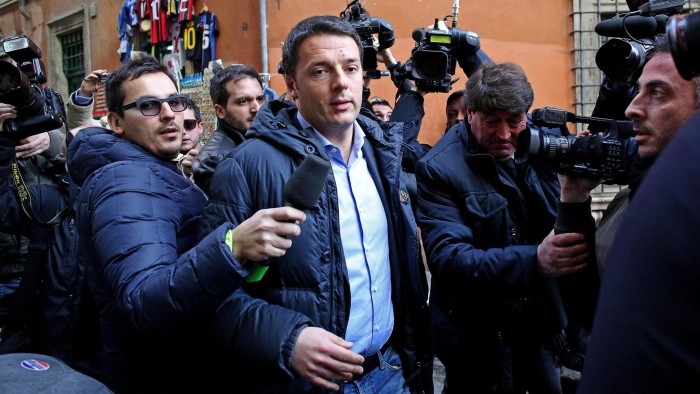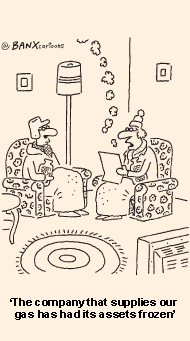Look to Renzi for la dolce vita

Roula Khalaf, Editor of the FT, selects her favourite stories in this weekly newsletter.
Fleshy hedonism and the decadent languor of Rome’s cocained and botoxed elite are served up in La Grande Bellezza – The Great Beauty – set against the decaying but still mesmerising wonders of the former imperial capital, as seen through the eyes of a jaded and ageing journalist.
Not surprisingly, politicians are hailing Paolo Sorrentino’s Academy Award-winning film an example of Made In Italy success. But it has also unleashed controversy over the state of Rome and the nation, rekindling the angst of a country in decline, now ridiculed for the burlesque and sometimes corrupt behaviour of its ruling classes, and looked upon at best with sad resignation.
Instead of Sorrentino’s metaphysical images of a glorious city, television channels and newspaper commentaries are churning over Rome’s real-life horrors, while mocking Mayor Ignazio Marino, a former liver transplant surgeon.
The result is a relentless recitation of the tawdry and sordid: pigs scavenging in overflowing suburban bins; roads pitted by potholes created by recent downpours; professional gangs of beggars exploiting children and intimidating pensioners and tourists; illegal immigrant hawkers of kitsch and fake designer bags; traffic chaos; and homeless people sleeping on the pavements.
“Rome is becoming the city of barbarians, its citizens seeming more like wild animals abandoned to themselves,” intones a presenter on independent television channel La Sette. “Instead of the great beauty, the capital of Italy seems like the great disgrace.”
Satirists are diving in, too. Maurizio Crozza, impersonator of Italy’s unloved politicians, adapts a scene from La Grande Bellezza in which journalist Jep Gambardella celebrates his 65th birthday at a wild rooftop party. He turns it into a sketch portraying adulation of Roberto Formigoni, the former governor of the northern region of Lombardy, who is facing charges of corruption in financing his lavish lifestyle. Mr Formigoni, a senator from a centre-right party that supports Matteo Renzi’s new coalition government, has responded in the time-honoured Italian way by threatening to sue for libel. He denies the charges.

Mr Marino, the centre-left mayor for less than a year, who bravely tours the city on his bicycle (with a pedalling police escort behind him), blames his city’s sorry state on his predecessor and has secured a €500m bailout from central government to avert bankruptcy. But some of his more whimsical efforts to restore hope – recently suggesting to an elementary school that it teach children to plant vegetables – have brought him further scorn.
Inspecting the area around Termini, the main railway station that has become a symbol of the city’s decay, he checks that rubbish has been collected and notes that he has appointed a refuse specialist as the new head of Ama, the utility derided by Romans for its own wastefulness. “Before, it was run by a horse-breeding expert,” he says. To those who point out that Atac, the city’s unloved public transport company, has more managers than Nasa, the US space agency, Mr Marino promises more drivers, and inspectors to stop the 30-60 per cent of passengers dodging fares.
At national level there is a sense, as in La Grande Bellezza, that the elite exists in a parallel world, epitomised by the comic character of Cardinal Bellucci, obsessed with reciting recipes and muttering a blessing from behind the curtains of his Rolls-Royce. In the real world Italians read of the latest scandals of regional politicians expensing sushi lunches, scratch cards and sex toys, while the new government comes under attack over the appointment of several senior officials under investigation or already on trial for alleged wrongdoings.
But while La Grande Bellezza features only ageing protagonists – the formerly beautiful and the grotesque – Italy is getting to grips with the sudden arrival on the scene of the fresh-faced Mr Renzi, its youngest ever prime minister. Although the former mayor of Florence came to power through an old-style palace coup rather than the ballot box, many Italians, as if at the cinema, are willing to suspend their sense of disbelief in the hope that his dynamism and ambition will deliver results.
But the honeymoon promises to be brief. As the prime minister demonstrated in the brutal ousting of his predecessor, in politics, trophies are easily snatched away.
Twitter: @DinmoreGuy
Comments